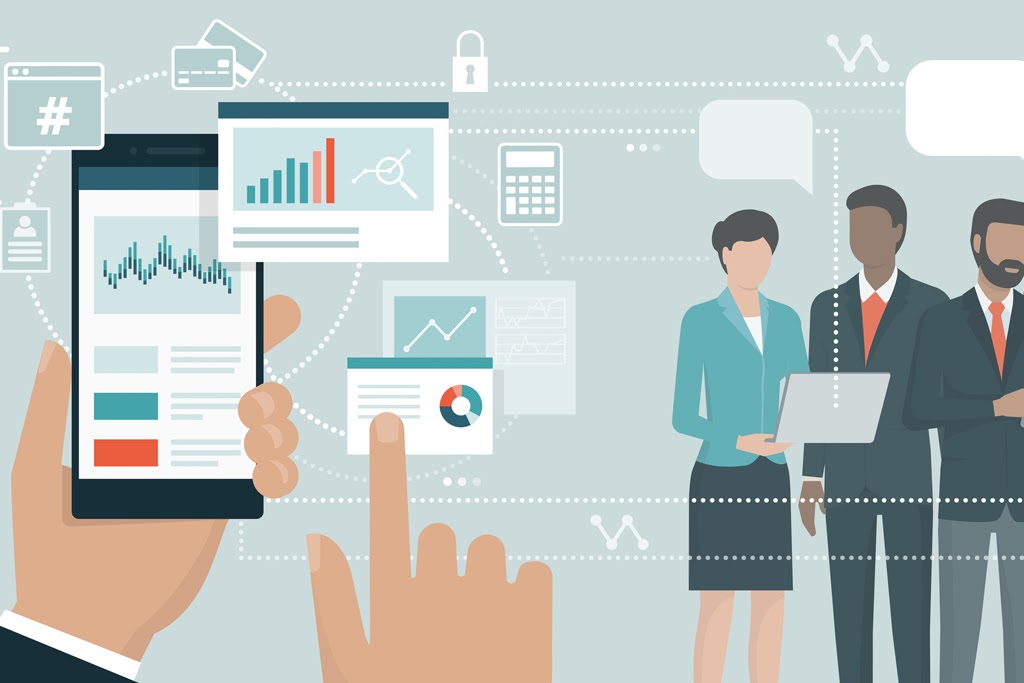Three Accounting Technology Trends for 2022

As someone considering an accounting degree and career, it might interest you to know that emerging technology promises to change the role of accountants and accounting. The advancements will allow accountants to shift their focus from repetitive process tasks to more strategic business problem solving.
Many digital tools can perform routine accounting processes—saving accountants valuable time. Audits, expense management, invoice processing, customer queries, and supplier onboarding are some of the accounting tasks that technology can accomplish, reports Forbes.
The future of accounting technology will continue to transform the field, making it an exciting field to enter. Here are three accounting technology trends that will impact accounting in 2022 and beyond.
Blockchain and Recordkeeping
IBM defines blockchain as a shared ledger that facilitates the process of recording transactions and tracking assets in a business network. Blockchain technology is now shaping the future of accounting.
Mark Sheldon, Ph.D., assistant professor of accountancy at John Carroll University, says blockchain offers users assurance by providing an accurate and complete record of transactions. “For accounting, blockchain technology allows trading partners to share a ledger that each regularly verifies, meaning there is consensus that the recorded data represents the true history of transactions as updated on a nearly real-time basis,” he explains in Inspired Business, a digital publication of the Boler College of Business at John Carroll University.
By providing certainty over transaction history, blockchain could have widespread implications on recordkeeping. This includes how transactions are initiated, processed, authorized, recorded, and reported, according to a white paper from the Chartered Professional Accountants of Canada (CPA Canada) and the American Institute of CPAs (AICPA).
Ultimately, blockchain is expected to broaden the scope of accounting and auditing. For future accountants, understanding this technology and its implications will be important as “both the role and skill sets of CPA auditors may change as new blockchain-based techniques and procedures emerge,” according to the same white paper.
Artificial Intelligence and Machine Learning
Artificial intelligence (AI) supports accounting automation, data analysis, and problem solving by quickly consuming and interpreting massive amounts of data.
Machine learning algorithms can automate accounting processes such as accounts payable and risk assessments, while AI chatbots can help answer customer questions. Furthermore, companies seeking to improve accuracy and reduce errors are turning to AI and machine learning. AI mimics human intelligence by understanding the inferred meaning in communication and using data to make decisions. AI’s ability to adjust to human behavior patterns means it can also accurately categorize information.
Like blockchain technology, AI will give current and future accountants extra bandwidth so they can work on more strategic business goals or financial consulting.
Remote Accounting and Data Vulnerability
The widespread growth of remote work creates a need for accounting departments to optimize data transmission, storage, and security. Cloud-based accounting services support remote-work needs by allowing accountants to access centralized tools and applications from any device, anywhere. These services make it possible for accountants working remotely to collaborate and communicate effectively.
Cloud accounting differs from on-site accounting in many ways. Cloud-based tools and software are considered more flexible, cost-effective, and scalable than traditional accounting hardware and software. Additionally, cloud-accounting software updates information automatically, offering real-time financial reporting.
Although remote accounting has several advantages, it also sparks some concerns about data vulnerability. Accountants have a responsibility to protect confidential information; thus, data security is a top priority for them. Those interested in becoming accountants will need to be familiar with Various protocols that can keep cloud accounting secure. Security procedures for cloud-based accounting include multifactor authentication, proper access permissions, activity monitoring, and backup solutions.
Your Future in Accounting
Obtain the technical competence and analytical skills needed for a changing accounting profession in John Carroll University’s Bachelor of Science in Accountancy program. Accountancy majors can choose from courses such as Global Business and Accounting Issues, which focuses on challenges arising from economic, social, technological, and political factors.
John Carroll is a private Jesuit university located in University Heights, Ohio, near Cleveland.
